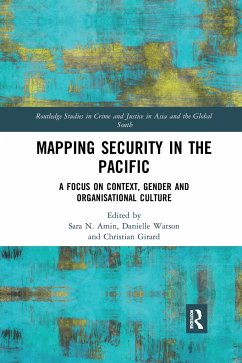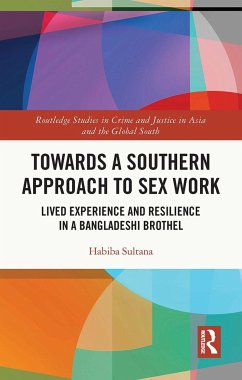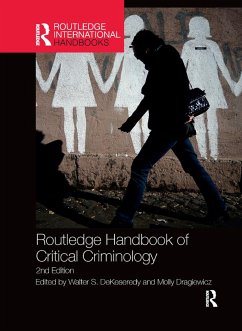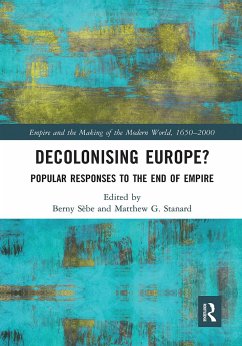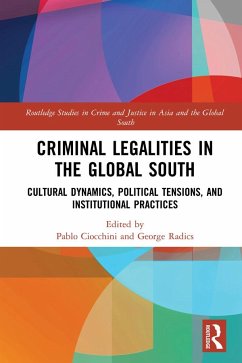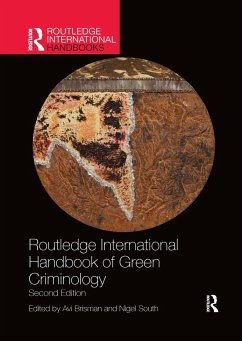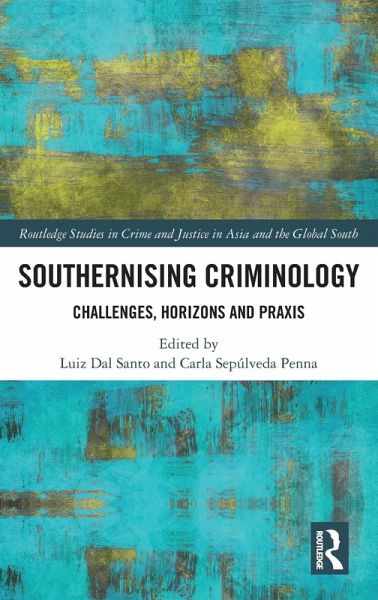
Southernising Criminology
Challenges, Horizons and Praxis
Herausgegeben: Dal Santo, Luiz; Sepúlveda Penna, Carla
Versandkostenfrei!
Versandfertig in 6-10 Tagen
154,99 €
inkl. MwSt.

PAYBACK Punkte
77 °P sammeln!
This book introduces the 'Southern criminology' movement; explores its theoretical, methodological, and philosophical tools; offers analytical accounts on the development of criminological thoughts in marginalised regions; and showcases the cutting edge of criminological research from Southern settings.Southernising Criminology is structured into three parts. The first part provides theoretical and methodological insights into how criminology can be Southernised, including renowned social scientists who share concerns for the need to reconceptualise the centre, the periphery, and their relatio...
This book introduces the 'Southern criminology' movement; explores its theoretical, methodological, and philosophical tools; offers analytical accounts on the development of criminological thoughts in marginalised regions; and showcases the cutting edge of criminological research from Southern settings.
Southernising Criminology is structured into three parts. The first part provides theoretical and methodological insights into how criminology can be Southernised, including renowned social scientists who share concerns for the need to reconceptualise the centre, the periphery, and their relations. The second part brings the reader up-to-date with the state of criminological research in different parts of the world and how far this landscape has changed when introducing Southern perspectives. The third part shows first-hand examples of how Southern criminology is done, with its challenges and transformative potential for criminological knowledge. Bringing together contributions from leading scholars working across the five continents and drawing on issues such as state criminality, violent crime, criminal justice practices, and state and non-state punishment, this book offers a critical account of the problems of metropolitan thinking, colonial and imperial power relations, and Western ethnocentric approaches to criminology. It offers a nuanced and grounded reflection on how things are being done differently and why that is important.
An accessible and compelling read, this book will appeal to students and scholars of criminology, sociology, politics, and policy makers from around the world who are interested in the field of criminology and are aware of the urgent need for it to be decolonised and democratised.
Southernising Criminology is structured into three parts. The first part provides theoretical and methodological insights into how criminology can be Southernised, including renowned social scientists who share concerns for the need to reconceptualise the centre, the periphery, and their relations. The second part brings the reader up-to-date with the state of criminological research in different parts of the world and how far this landscape has changed when introducing Southern perspectives. The third part shows first-hand examples of how Southern criminology is done, with its challenges and transformative potential for criminological knowledge. Bringing together contributions from leading scholars working across the five continents and drawing on issues such as state criminality, violent crime, criminal justice practices, and state and non-state punishment, this book offers a critical account of the problems of metropolitan thinking, colonial and imperial power relations, and Western ethnocentric approaches to criminology. It offers a nuanced and grounded reflection on how things are being done differently and why that is important.
An accessible and compelling read, this book will appeal to students and scholars of criminology, sociology, politics, and policy makers from around the world who are interested in the field of criminology and are aware of the urgent need for it to be decolonised and democratised.





